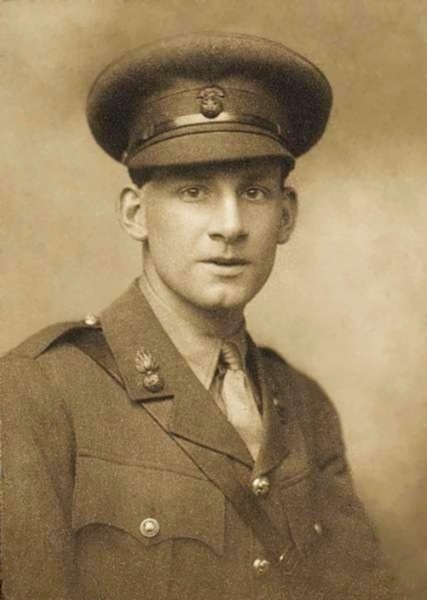Siegfried Sassoon (1886–1967)
131 Biography

With war on the horizon, Siegfried Sassoon, a young Englishman whose life had up to that time been consumed with the protocol of fox-hunting, playing cricket, golfing and writing romantic verses, said goodbye to his idyllic life and rode off on his bicycle to join the army. Sassoon was perhaps the most innocent of the war poets. John Hildebidle has called him the “accidental hero.”
Being an innocent, Sassoon’s reaction to the realities of the war were all the more bitter and violent — both his reaction through his poetry and his reaction on the battlefield where, after the death of fellow officer David Thomas and his brother Hamo at Gallipoli, Sassoon earned the nickname “Mad Jack” for his near-suicidal exploits against the German lines. (In the early manifestation of his grief he believed that the Germans were entirely to blame.) As Paul Fussell said: “now he unleashed a talent for irony and satire and contumely that had been sleeping all during his pastoral youth.” Sassoon also showed his innocence by going public with his protest against the war as he grew to see that insensitive political leadership was the greater enemy than the Germans. Luckily, his friend and fellow poet Robert Graves convinced the review board that Sassoon was suffering from shell shock, and he was sent instead to the military hospital at Craiglockhart where he met and influenced Wilfred Owen.
Sassoon is a key figure in the study of the poetry of World War I: he brought with him to the war the idyllic pastoral background; he began by writing war poetry reminiscent of Rupert Brooke; he mingled with such war poets as Robert Graves and Edmund Blunden; he spoke out publicly against the war (and yet returned to it); he influenced and mentored the then unknown Wilfred Owen; he spent 30 years reflecting on the war through his memoirs; and at last he found peace in his religious faith. Some critics found his later poetry lacking in comparison to his war poems. Sassoon, identifying with Herbert and Vaughan, recognized and understood this: “my development has been entirely consistent and in character,” he answered. “Almost all of them have ignored the fact that I am a religious poet.”
Biography by Robert Means
Oxford Tutorials
Click on the Oxford First World War Poetry unit link and work your way through as many of the poems/letters as you wish.
Media Attributions
- Siegfried Sassoon © George Charles Beresford (1915) is licensed under a Public Domain license

